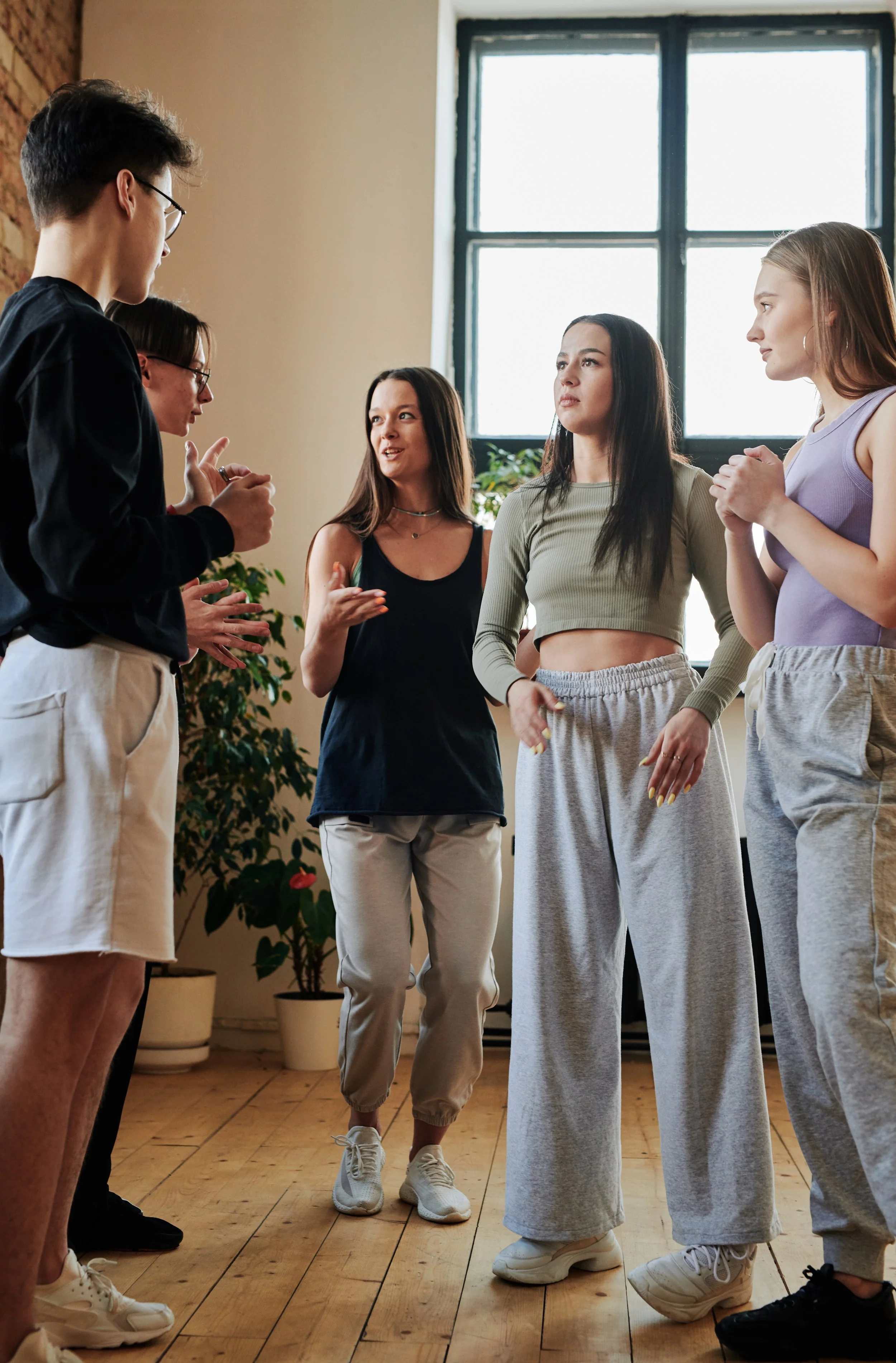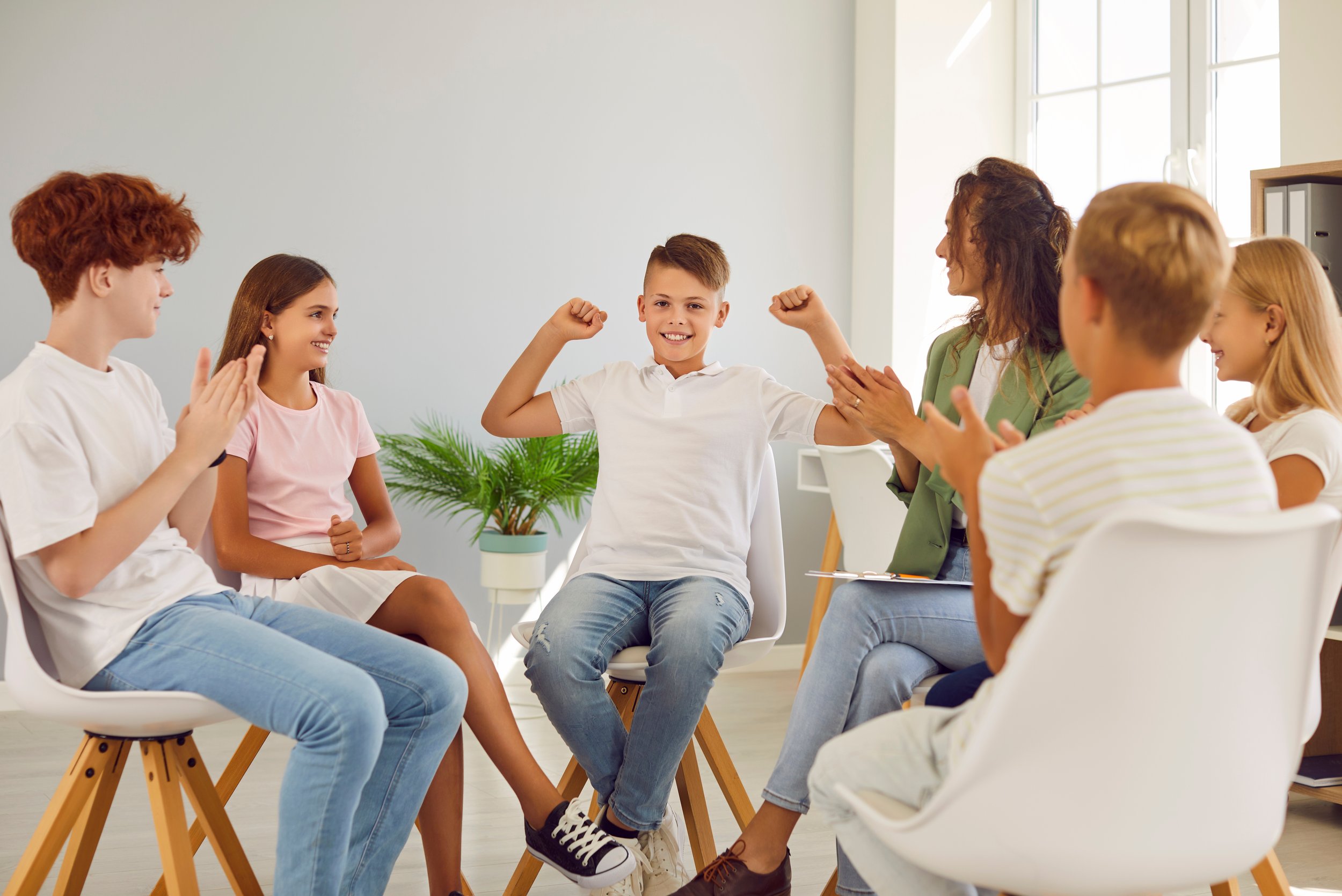
Social Skills Groups and Workshops
The goal of social skills groups and workshops is to provide children and teenagers with practical strategies and advice for developing and strengthening social connections with peers. We will cover several key areas, including understanding different perspectives, meeting new people, working with new learning partners, having meaningful conversations, handling conflict, demonstrating empathy, and planning successful get-togethers.
Lessons for Children & Teens
We understand the unique challenges that children and teenagers may face when it comes to social interactions, and our groups are tailored to address these specific needs. Whether your child is struggling with making friends, communicating effectively, or managing conflicts, our social skills group provides a structured and supportive environment to help them develop the necessary tools for success. Join us in empowering your child to thrive socially and build meaningful connections.
-
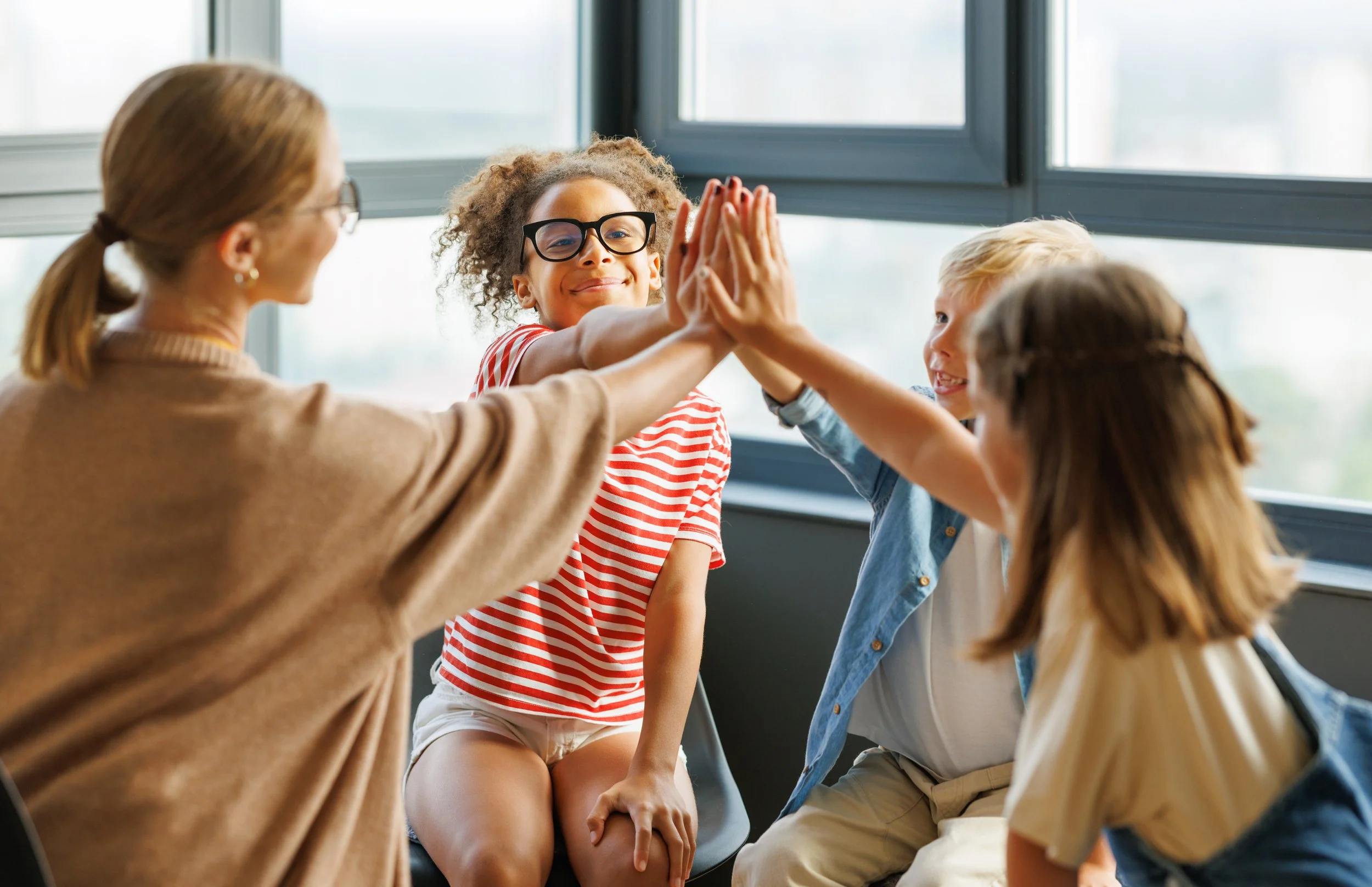
Improve Public Speaking Skills
In this group, children and teens will learn techniques to overcome anxiety about speaking in front of others. They will gain confidence through practice and repetition. We will cover how to organize thoughts, structure a simple speech or presentation, make eye contact, project confidence, and keep an audience engaged.
-
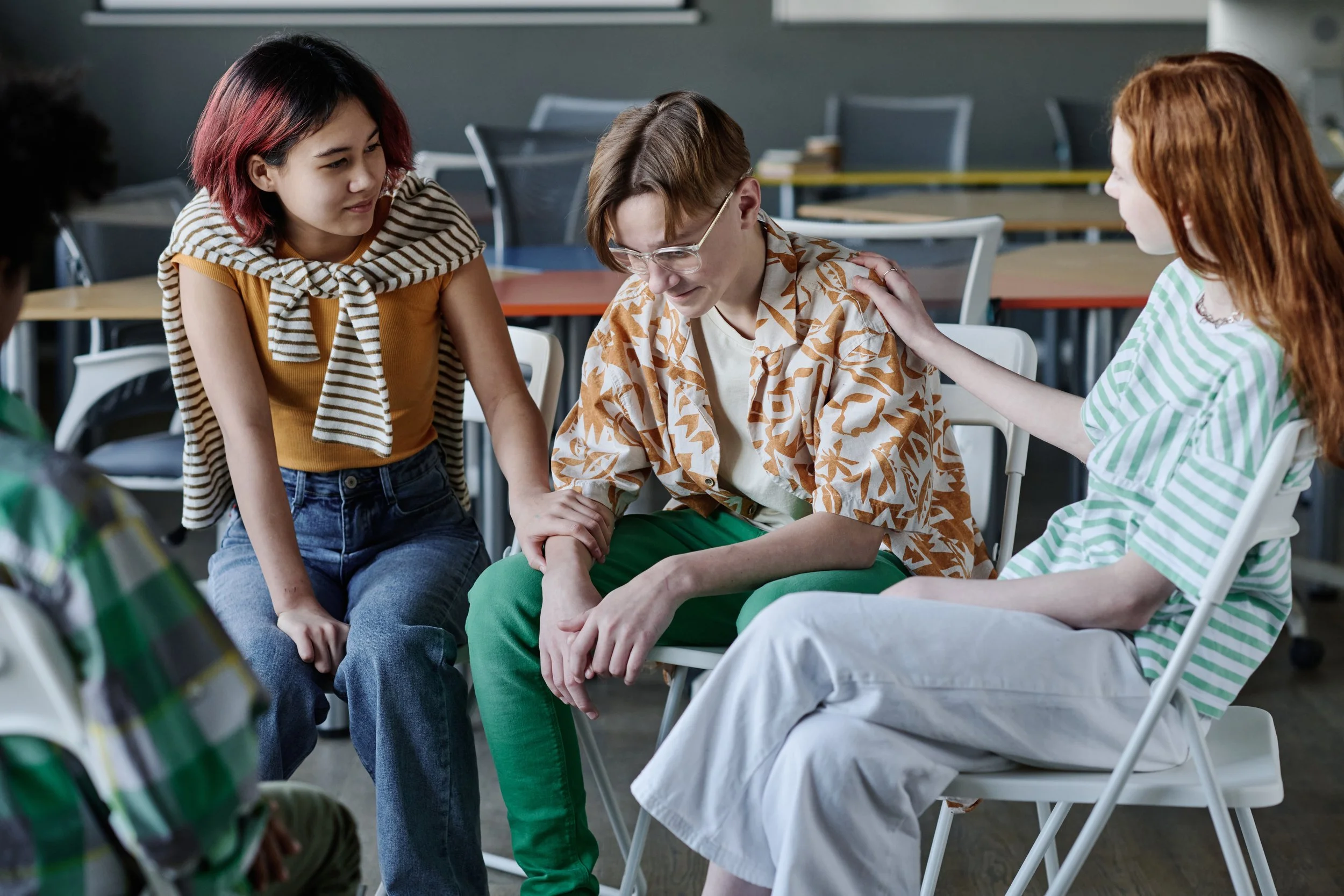
Overcome Social Difficulties
This group provides a structured opportunity for children and teens struggling with social anxiety to practice social skills in a safe, therapeutic setting. Rather than explicit lessons, the focus will be on exposing participants to social situations that create anxiety and building confidence through role plays, games, and supportive coaching.
-
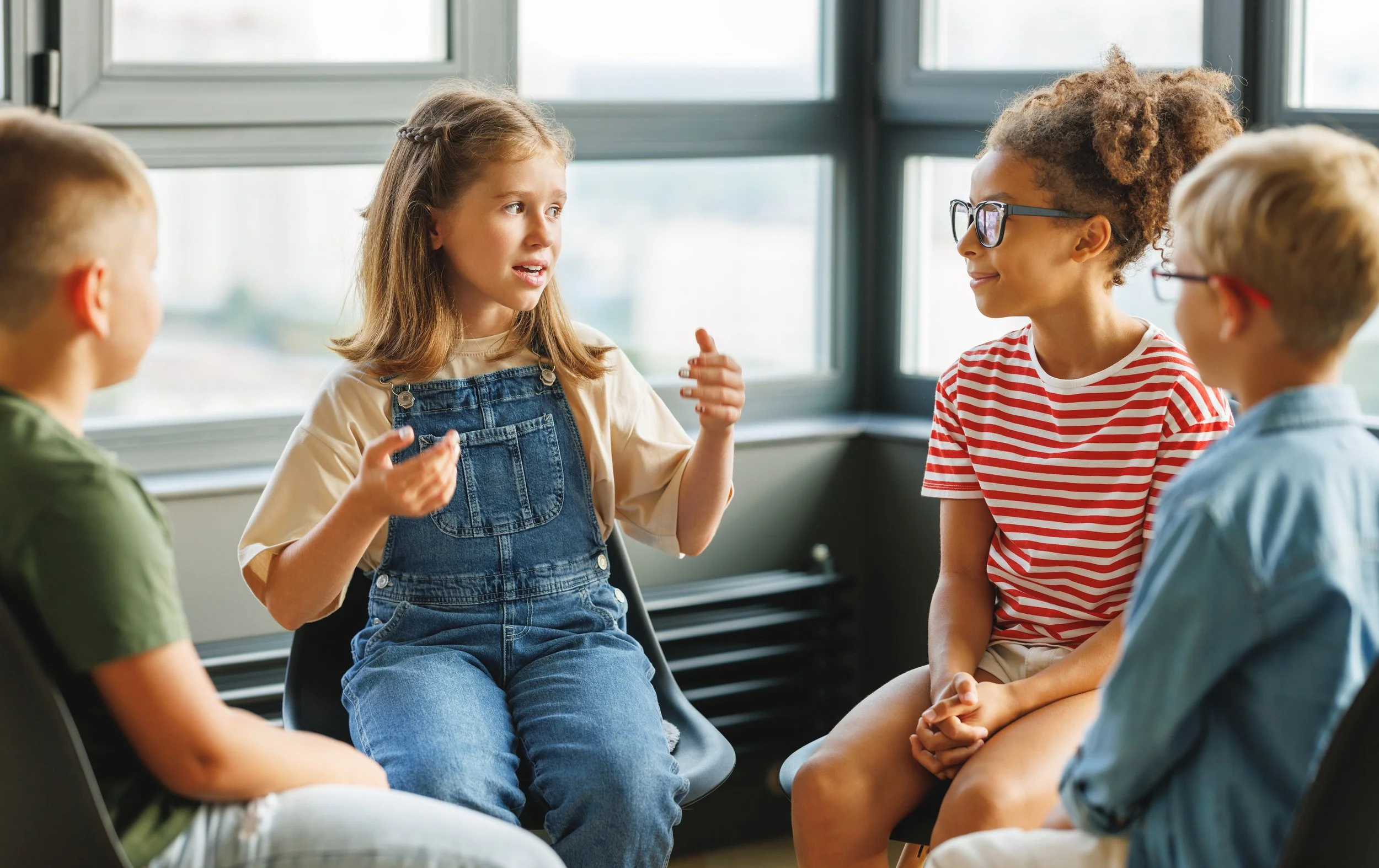
Hone General Social Skills
This general social skills building group is open to any child or adolescent hoping to enhance social confidence and abilities among peers. Through fun activities and exercises, participants will learn how to initiate conversations, make eye contact, read body language/facial expressions, have back-and-forth discussions, pick up on social cues, use humor appropriately, and more.
Our Teaching Methods
Our engaging social skills training groups utilize a variety of interactive teaching methods tailored for each age group. Role-playing, visual handouts, video clips, and open discussions are incorporated to bring the concepts to life in an accessible way for the children and teens.
-
We provide education about social skills, social cues, perspective-taking, conversation skills, friendship skills, emotion regulation, conflict resolution, and more. Understanding the reasoning behind social behaviors and expectations is an important first step.
-
Participants get ample opportunity to practice target skills in session through role plays, simulations, and other experiential activities. This allows us to shape and reinforce appropriate social behaviors through modeling, feedback, and repetition.
-
We work with parents/caregivers to identify opportunities for your child to apply their emerging social skills at home, school, and in the community. Generalization is key so the skills translate into real social success.
-
Participants get weekly practice assignments to help maintain and solidify gains made during sessions. Maintaining skills requires ongoing rehearsal.
Potential Topics Covered
-
One of the most important social skills is perspective-taking. It helps kids and teens understand other people's feelings and behaviours. We will teach them how to put themselves in someone else's shoes and how to adjust their communication style based on the other person's needs.
-
Initiating conversations, conversation mapping, ending conversations appropriately, joining conversations in progress, reciprocal conversation, and elaborating on responses are all essential conversation skills. We will provide practical tips and techniques to help kids and teens improve their conversation skills.
-
It's essential to teach kids and teens how to handle winning and losing gracefully. We will provide a safe space where they can practice these skills through role-playing and simulations. We will also discuss sportsmanship and how to be a good winner and a gracious loser.
-
Joining games in progress can be intimidating, and we will teach kids and teens how to do it with confidence. We will discuss strategies for approaching groups, introducing themselves, and joining the game.
-
Empathy is the ability to understand and share the feelings of others. We will teach kids and teens how to demonstrate empathy through active listening, acknowledging feelings, and offering support.
-
Conflict resolution is an essential skill, and we will teach kids and teens how to navigate conflict within a friendship. We will discuss strategies for active listening, expressing feelings, and finding common ground.
-
Navigating peer rejection can be challenging, and we will teach kids and teens how to handle these situations with confidence. We will discuss strategies for building resilience, finding new friends, and coping with rejection positively.
-
Assertiveness is an essential communication skill that helps kids and teens stand up for themselves while being respectful of others. We will teach them how to express their thoughts and feelings clearly and assertively.
-
Having successful hangouts outside of the school environment is crucial for building strong relationships. We will discuss strategies for planning hangouts, setting expectations, and having fun together.
-
In our workshop, participants will learn strategies to use social media in a healthy way, such as setting boundaries around screen time, being cautious about what they share online, and avoiding negative interactions. We'll discuss how to identify and resist peer pressure, set personal values, and make good choices. Kids will also gain skills for developing positive friendships, communicating effectively, and managing conflict.

